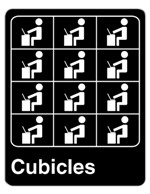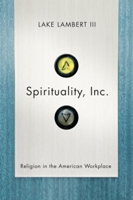
On some days, work feels like a seamless repetition. Every task: copying, writing memos, attending meetings, responding to email requests, all take on a sense of endless repetition. All feel like shadows of something more real; faint echoes of sounds whose sonorous beginnings ceased long ago. The reasons for pushing through such days are many: the bills get paid, the family is fed, and the mortgage moves one month closer to satisfaction. But, on such days, there can be a craving for deeper meaning. The new book Spirituality, Inc.: Religion in the American Workplace by Lake Lambert III explores the contours of this quest for deeper meaning in the workplace.

Lambert recognizes that the landscape of the American workplace is being radically altered as people attempt to integrate their spirituality more fully into the workplace. Yet, it is not only the workplace that is being altered, but also religious expression. As the diverse forces of spirituality and the culture of the workplace intersect, they exert pressure on one another causing each to change shape. Spirituality, Inc. traces this dynamic history between “the workplace spirituality movement” and American business culture. Lambert begins his study with the role of spirituality in the medieval guilds, follows it through “industrial ‘company towns,'” and then explores spirituality’s role in the contemporary workplace. Through the use of case studies, Lambert examines the “enhanced benefits and support that workplace spirituality offers” employees and exposes the tensions around “diversity, religious freedom, and discrimination” that arise when religious expression becomes more apparent in the workplace.
When one is a Liberal-Evangelical who is deeply committed to uniting the meaning of faith and the meaning of life, the craving for deeper meaning in the workplace may be quenched by expressing more fully one’s spirituality in the work environment. Yet, being a Liberal-Evangelical, one is conscientious about expressing spirituality in the workplace since it can easily become a source of conflict. Lambert’s investigation into the evolving relationship between spirituality and the workplace with its accompanying treasures and pitfalls may be a beacon of light for those seeking to navigate the treacherous waters of spirituality in the workplace.
Links
To read the overview of Spirituality, Inc.: Religion in the American Workplace click here.

